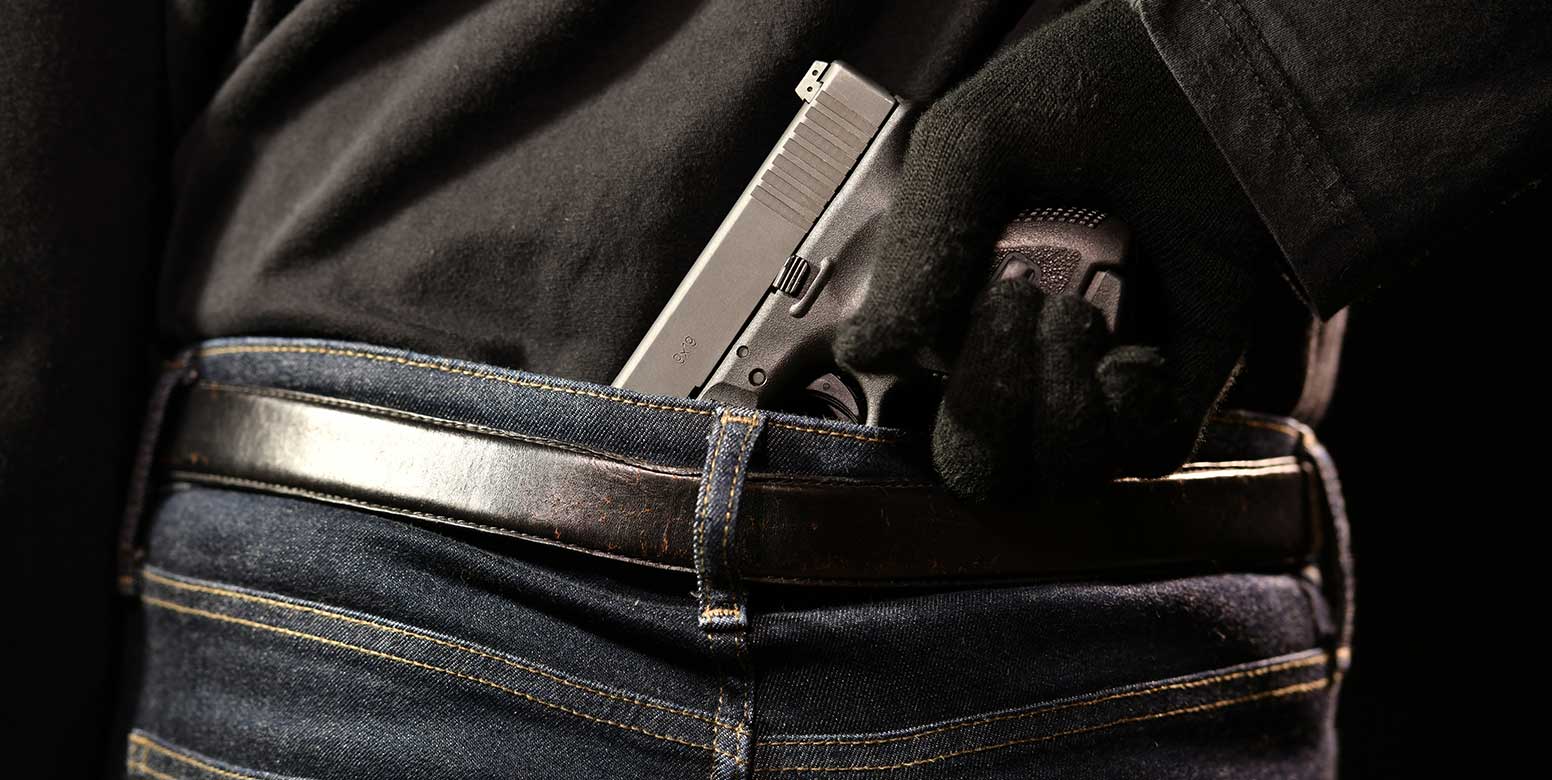What if there is an inaccurate statement on a Federal Firearms Transaction Record?
Anyone purchasing a handgun must complete an ATF Form 4473, otherwise known as a Firearms Transaction Record. A false or inaccurate statement can lead to federal felony charges.

Felony False Statement on a Firearms Transaction Record
A Firearms Transaction Record, also known as ATF Form 4473, is a six-page form required by the Bureau of Alcohol, Tobacco, Firearms, and Explosives (ATF) when a person purchases a firearm from a Federal Firearms License (FFL) holder, such as a gun dealer. Great care must be taken when filling out a Firearms Transaction Record because even slight errors or false statements can lead to federal felony charges.
Penalties for Making a False Statement on a Firearms Transaction Record
Intentionally and knowingly making a false statement on a Firearms Transaction Record can result in up to 10 years in federal prison. Failing to disclose illegal drug use (including marijuana) or an addiction is a felony punishable by up to 5 years in prison.
Confusing Questions Can Lead to Misstatements on an ATF Form 4473
The questions on ATF Form 4473 can be confusing. It is essential that you take great care to answer honestly and accurately. Here are examples of questions that cause confusion:
“Are you under indictment in any court for a felony or any other crime for which the judge could imprison you for more than one year?”
If charges have been filed against you in court, it’s critical to determine whether the offense is a felony. A felony is any offense with a possible sentence exceeding a year in prison. In Michigan, state felony charges are filed by a complaint or information, not an indictment. The difference is immaterial, and any pending felony charges must be disclosed.
“Have you ever been convicted in any court of a felony or any other crime for which the judge could have imprisoned you for more than one year, even if you received a shorter sentence, including probation?”
If you were convicted of a felony (an offense punishable by more than one year), it must be disclosed even if you only got a warning or were given a fine or probation without jail. Also, if you were convicted and the charge was later dismissed by operation of a statute or court rule, such as a delayed sentence, it must be disclosed.
“Are you a fugitive from justice?”
A “fugitive from justice” means there is an open warrant for your arrest on a felony, misdemeanor, civil infraction, or any other legal matter anywhere in the United States or a federal court.
“Are you an unlawful user of, or addicted to, marijuana or any depressant, stimulant, narcotic drug, or another controlled substance?”
A user or person addicted to illegal drugs, including marijuana, must disclose their use or addiction on Form 4473. The government could make a good faith argument that a person who abuses or is addicted to lawfully prescribed medication must disclose this information.
“Have you ever been adjudicated as mentally defective, OR have you ever been committed to a mental institution?”
If you willingly sought in-patient mental health care, you might not know how to respond to this question. This question pertains to whether a court deemed you mentally incompetent for a period of time or if you were involuntarily committed to a mental health facility by a court or other legal authority.
“Have you ever been convicted in any court of a misdemeanor crime of domestic violence?”
A misdemeanor domestic violence conviction results in a lifetime ban on federal firearm rights. If you had a prior charge deferred or delayed and then ultimately dismissed, you might not know how to answer this question. If you had a previous domestic violence charge, it would be in your best interest to consult with a lawyer before answering this question.

Intentional Misrepresentations on the Firearms Transaction Record – Straw Purchases
One of the most common scenarios in federal felony charges related to false statements on a Firearm’s Transaction Record involves “straw purchasers.” A person can only purchase a firearm for themselves and must complete Form 4473 accurately. One question on Form 4473 is, “Are you the actual transferee/buyer of the firearm(s) listed on this form?” If the answer is “no,” the purchase will be denied. Misrepresentations regarding who is purchasing the firearm or whether the firearm is for the purchaser are surefire ways to get criminal charges. If someone buys a firearm and plans to transfer it to someone else, they commit a serious federal felony offense.
Another common misstatement occurs when someone falsely claims they do not use marijuana. If the firearm purchaser falsely claims that they are not a drug user, including marijuana, this misrepresentation can be the basis for a criminal charge. A person must admit to marijuana use because that substance is still illegal under federal law, even though it is legal under Michigan law.
Using false or altered identification is also illegal and can result in prison and other consequences.
If you’ve misstated a fact when completing a Firearm’s Transaction Record and you’re contacted by law enforcement, do not talk with them under any circumstances. Immediately hire a qualified firearms defense attorney and get help right away.
Acceptable identification for the purchase of a firearm includes a document containing the name, residence address, date of birth, and photograph of the holder and which was made or issued by or under the authority of the United States Government, a State, political subdivision of a State, or a foreign government. A driver’s license is usually used for identification purposes.
Form 4473 requires disclosure of the following information:
- purchaser’s name, address, date of birth,
- government-issued photo ID,
- NICS background check transaction number,
- the make, model, or serial number of the firearm, and
- an affidavit attesting to the purchaser’s eligibility under federal law.
What happens if you make a mistake on the 4473 Form?
When filling out the necessary forms for purchasing a handgun, a simple mistake can lead to a criminal charge, so there is little room for error. It is unlikely the government will prosecute for an obvious mistake, such as a spelling error or typo. Even if your mistake was innocent, it is essential that you hire a defense lawyer immediately if federal or state law enforcement officers or agents contact you. Do not talk! Although you might be tempted to try and “explain” the situation, remember that “anything you say can and will be used against you.” Do not fall for government tricks or manipulations. Do not speak without the assistance of a lawyer.
Is Form 4473 required to purchase a handgun in a private sale?
In most jurisdictions, a person who buys a firearm from a private individual who is not an FFL-regulated dealer is not required to fill out an ATF Form 4473. Before selling any small arms, like handguns, purchased from private individuals in another state, Form 4473 must be completed.

Criminal Defense Attorney for False Statement on a Firearms Transaction Record
The Firearms Defense Team with LEWIS & DICKSTEIN, P.L.L.C. has decades of experience effectively defending clients on firearms charges in state and federal courts. We use a unique team approach that maximizes our defense capabilities and results in case outcomes that are unobtainable by many other lawyers. We’ve successfully represented many clients facing charges for allegedly false statements on firearms transaction records, such as Form 4473. Call for a free consultation if you are looking for top-quality legal representation at affordable rates.
Call us today at (248) 263-6800 for a free consultation or complete an online Request for Assistance Form. We will contact you promptly and find a way to help you.












